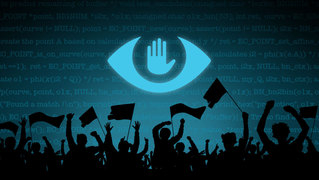
Topics
PARK CITY, Utah—A year after Internet freedom activist Aaron Swartz’s suicide at the age of 26, a film about this remarkable young man has premiered at the Sundance Film Festival. The film, titled “The Internet’s Own Boy: The Story of Aaron Swartz,” directed by Brian Knappenberger, follows the sadly short arc of Aaron’s life. He committed suicide while under the crushing weight of unbending, zealous federal prosecutors, who had Aaron snatched off the street near the Massachusetts Institute of Technology, accusing him of computer crimes.
At the age of 14, Aaron helped develop RSS, “Really Simple Syndication,” which changed how people get online content. He co-founded one of the Internet’s most popular websites, Reddit. In the year before his death, he helped defeat a notorious bill before Congress, the Stop Online Piracy Act (SOPA), which would have granted corporations sweeping powers of censorship over the Internet. Now, another fight for the freedom of the Internet has begun. This one will have to be waged without Aaron.
A coalition of Internet activists, technologists and policy experts are joining together on Feb. 11 for “The Day We Fight Back.” As they say on their website, reflecting on the victory against SOPA, “Today we face a different threat, one that undermines the Internet, and the notion that any of us live in a genuinely free society: mass surveillance. If Aaron were alive, he’d be on the front lines, fighting against a world in which governments observe, collect, and analyze our every digital action.” Before Edward Snowden made “NSA” and “mass surveillance” household terms, Aaron was speaking out against the National Security Agency’s bulk collection programs. His brother, Noah Swartz, told me, “I think Aaron’s message that we can all take with us is that … we can see the change we want to see in the world by participating, rather than feeling helpless and useless.”
Click here to read the full column published by Truthdig.











Media Options